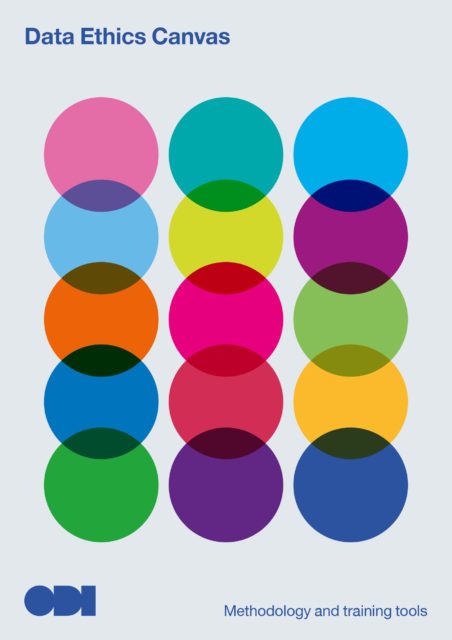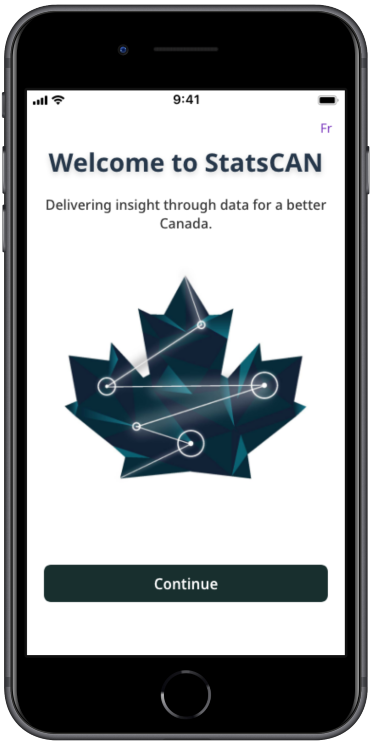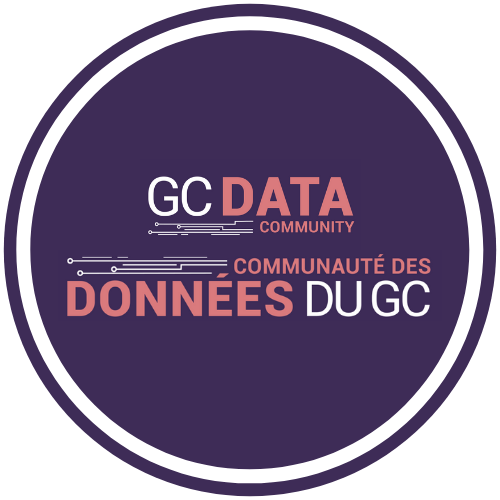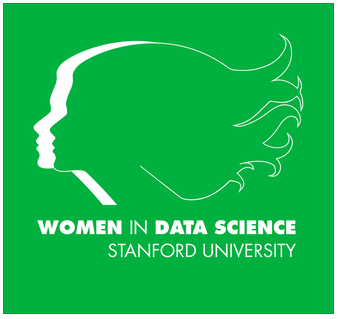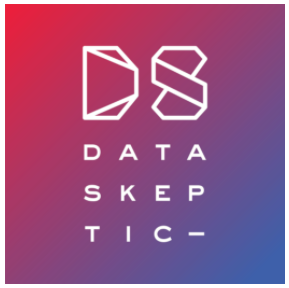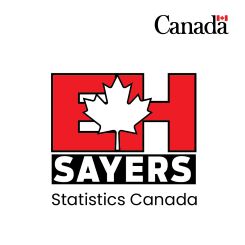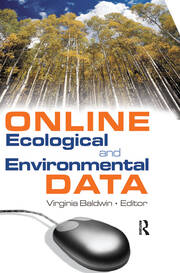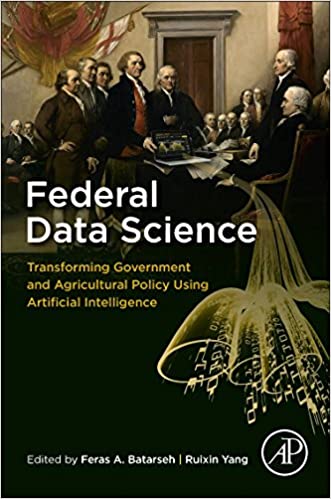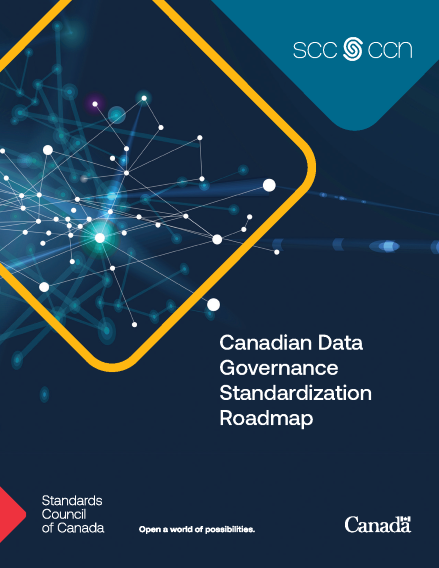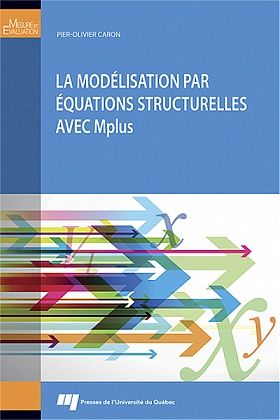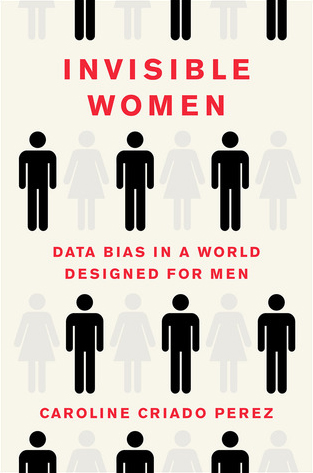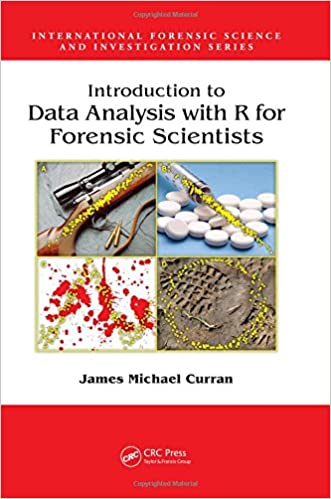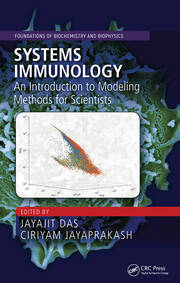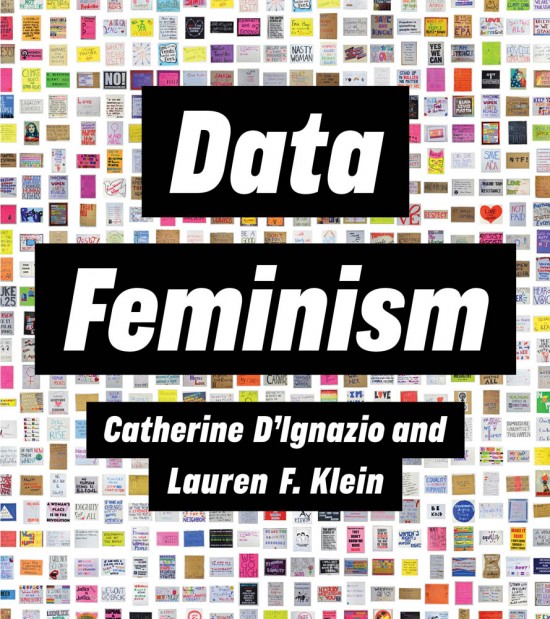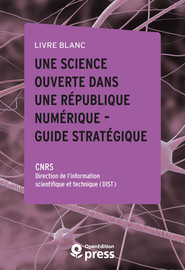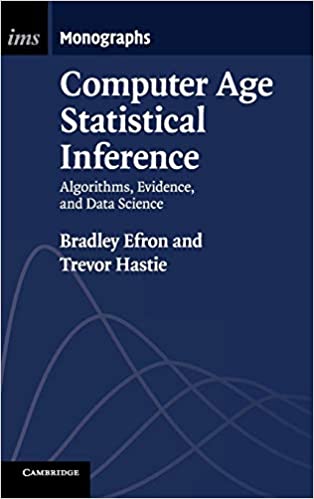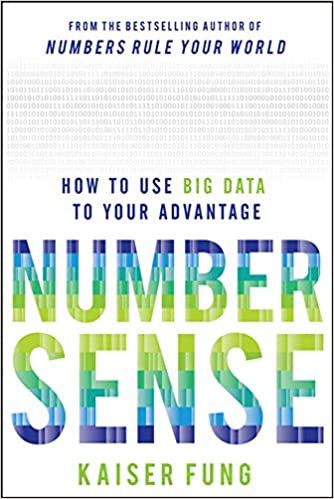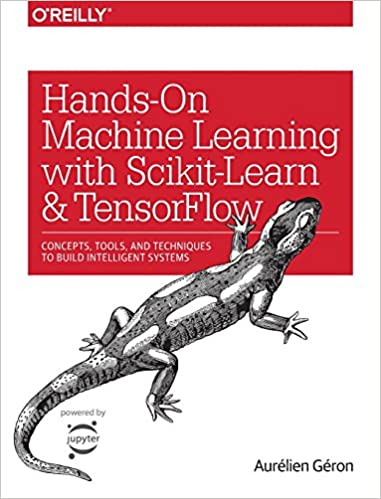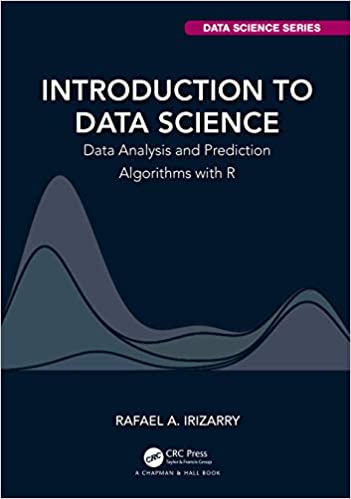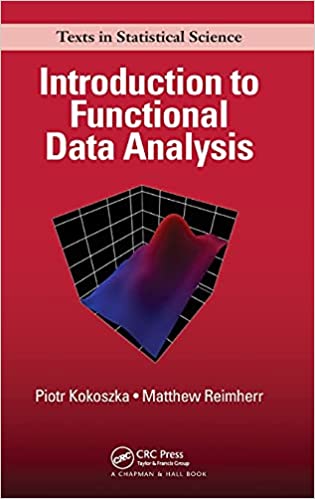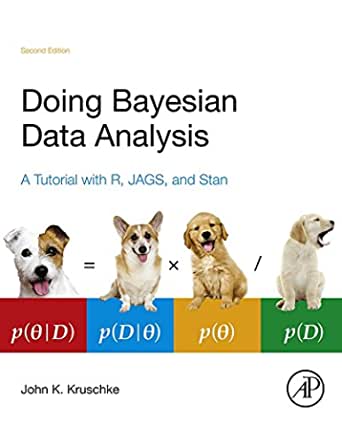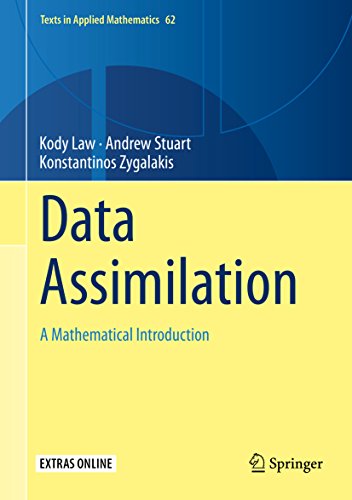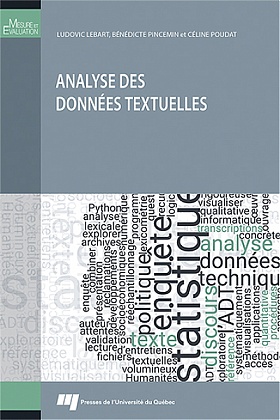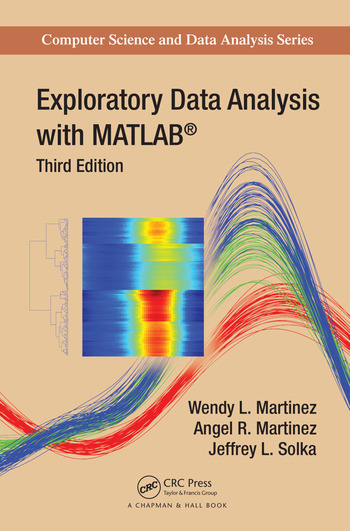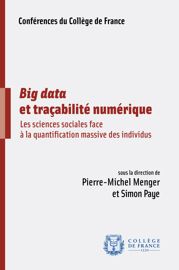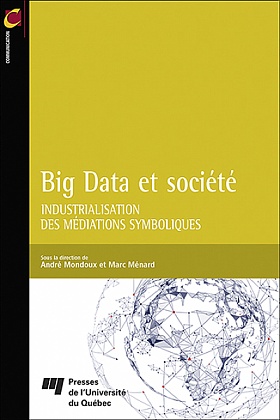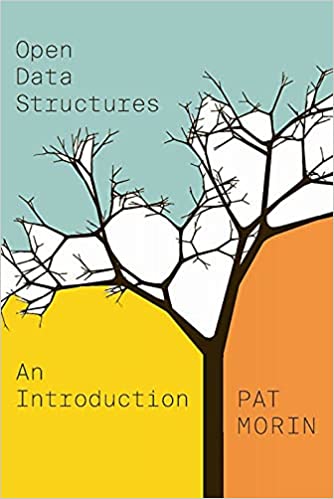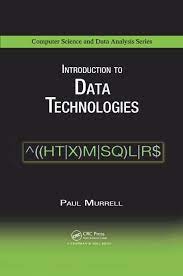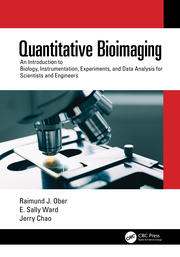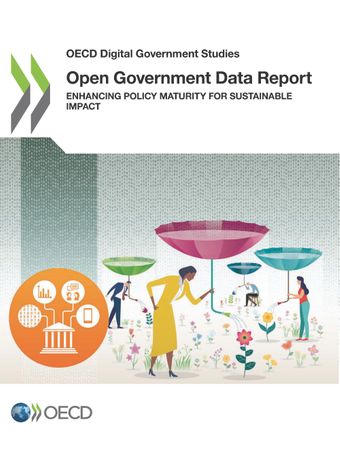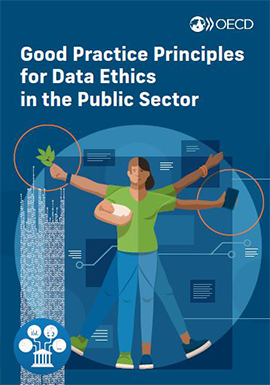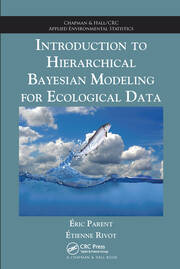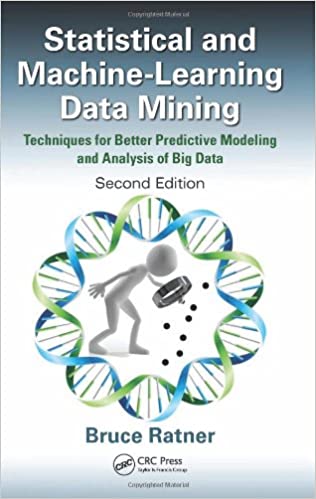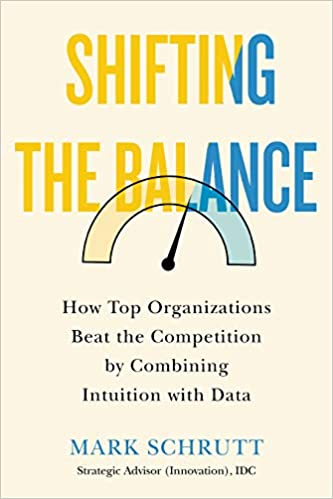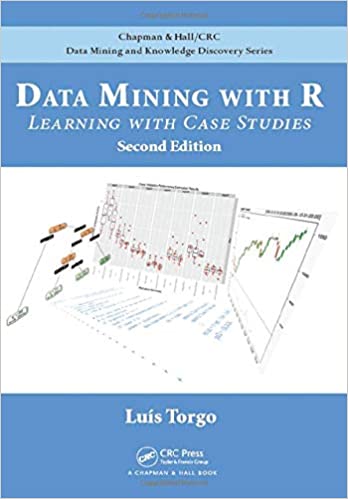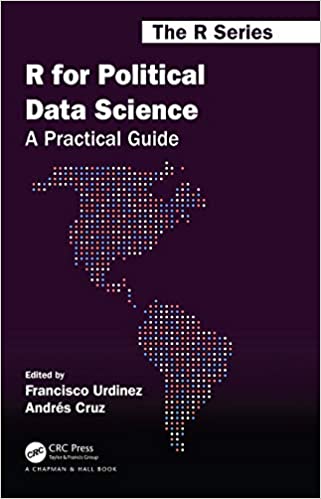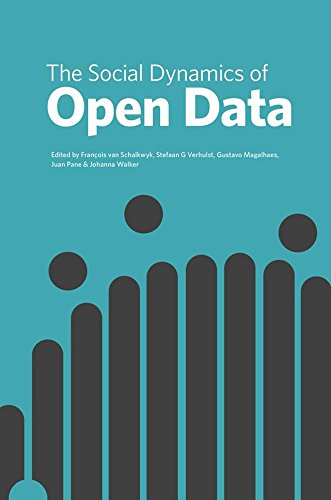Important: The GCConnex decommission will not affect GCCollab or GCWiki. Thank you and happy collaborating!
Difference between revisions of "Discover more about data"
Sharon.twiss (talk | contribs) m |
Samuel.burke (talk | contribs) |
||
| (36 intermediate revisions by 2 users not shown) | |||
| Line 56: | Line 56: | ||
}} | }} | ||
| − | <p style="text-align: | + | <p style="text-align:left; padding: 10px; margin-top: -10px; width:1130px"><strong>[https://wiki.gccollab.ca/Découvrez_plus_sur_les_données Français]</strong></p> |
[[Image:DataCon2022-Banner-EN.png |100%|Data Conference 2022: Driving Data Value and Insights for All Canadians, 23 + 24 February 2022]] | [[Image:DataCon2022-Banner-EN.png |100%|Data Conference 2022: Driving Data Value and Insights for All Canadians, 23 + 24 February 2022]] | ||
<p style="background-color: #f18f34; padding: 5px; width:1130px""><small> | <p style="background-color: #f18f34; padding: 5px; width:1130px""><small> | ||
| − | <strong>[https:// | + | <strong>[https://vexpodev.z9.web.core.windows.net/en/#/2203/lobby Virtual Expo]</strong> | |
| − | <strong>[https://wiki.gccollab.ca/Data_Conference_2022_Agenda | + | <strong>[https://wiki.gccollab.ca/Data_Conference_2022_Agenda Agenda]</strong> | |
| − | <strong>[https://wiki.gccollab.ca/Data_Conference_2022_Speakers Conference speakers]</strong> | + | <strong>[https://wiki.gccollab.ca/Data_Conference_2022_Speakers Conference speakers]</strong> | |
| − | + | <strong>[https://wiki.gccollab.ca/Data_Conference_2022_Networking_Missions Networking Missions]</strong> | | |
| − | + | <strong>[https://wiki.gccollab.ca/GC_Data_Conference_2023/Discover_more_about_data Discover more about data 2023]</strong> | | |
| + | <strong>[https://wiki.gccollab.ca/Data_Conference_2022_Announcements Announcements]</strong> | ||
</small></p> | </small></p> | ||
<p style="color: DarkBlue; font-size:large;"><strong>Brought to you by Statistics Canada and the Canada School of Public Service with support from the GC Data Community</strong></p> | <p style="color: DarkBlue; font-size:large;"><strong>Brought to you by Statistics Canada and the Canada School of Public Service with support from the GC Data Community</strong></p> | ||
| − | + | ||
<h1>Discover more about data</h1> | <h1>Discover more about data</h1> | ||
<p><small>Are we missing something? Send us the details: [mailto:gcdc-cdgc@csps-efpc.gc.ca GC Data Community]</small></p> | <p><small>Are we missing something? Send us the details: [mailto:gcdc-cdgc@csps-efpc.gc.ca GC Data Community]</small></p> | ||
| Line 80: | Line 81: | ||
<p><strong>[https://www.csps-efpc.gc.ca/catalogue/courses-eng.aspx?code=I511 The Role of Data in Digital Government]</strong> (virtual classroom)</p> | <p><strong>[https://www.csps-efpc.gc.ca/catalogue/courses-eng.aspx?code=I511 The Role of Data in Digital Government]</strong> (virtual classroom)</p> | ||
<p class="recco">Recommended by the Canada School of Public Service, a GC Data Community partner</p> | <p class="recco">Recommended by the Canada School of Public Service, a GC Data Community partner</p> | ||
| + | |||
| + | <h3 style="text-decoration:none;">[https://catalogue.csps-efpc.gc.ca/catalog?pagename=Catalog&cm_locale=en Canada School of Public Service Learning catalogue]</h3> | ||
| + | <p>Browse the School's full catalogue of courses, events, programs and other learning tools. For recommended learning by theme or community, view our Learning paths.</p> | ||
| + | <p class="recco">Recommended by Statistics Canada, a GC Data Community partner</p> | ||
| + | |||
| + | <h3 style="text-decoration:none;">[https://www.csps-efpc.gc.ca/digital-academy/index-eng.aspx Digital Academy]</h3> | ||
| + | <p>The CSPS Digital Academy was established by the Canada School of Public Service (CSPS) in 2018 to help federal public servants gain the knowledge, skills and mindsets they need in the digital age. It supports the principles of Canada's Beyond2020 initiative for an agile, inclusive and equipped workforce and advocates for a digital-first approach that aligns with Canada's Digital Standards. </p> | ||
| + | <p class="recco">Recommended by Statistics Canada, a GC Data Community partner</p> | ||
<h3 style="text-decoration:none;">[https://www.statcan.gc.ca/en/wtc/data-literacy Statistics Canada’s Data Literacy Training Initiative]</h3> | <h3 style="text-decoration:none;">[https://www.statcan.gc.ca/en/wtc/data-literacy Statistics Canada’s Data Literacy Training Initiative]</h3> | ||
| Line 102: | Line 111: | ||
<p>(In English) A re-cap of ODC’s Implementation Working Group meeting held last September 2021.</p> | <p>(In English) A re-cap of ODC’s Implementation Working Group meeting held last September 2021.</p> | ||
<p class="recco">Recommended by the Office of the CIO of Canada, Treasury Board of Canada Secretariat, a GC Data Community partner</p> | <p class="recco">Recommended by the Office of the CIO of Canada, Treasury Board of Canada Secretariat, a GC Data Community partner</p> | ||
| + | |||
| + | <h3 style="text-decoration:none;">[https://www.turing.ac.uk/news/can-data-trusts-be-backbone-our-future-ai-ecosystem Can data trusts be the backbone of our future AI ecosystem?]</h3> | ||
| + | <p class="author">Dr Aida Mehonic, on The Alan Turing Institute</p> | ||
| + | <p>(In English) Here at The Alan Turing Institute, we’re interested in how data trusts could help to shape the future artificial intelligence (AI) ecosystem. At present, lots of well-intentioned initiatives to create machine learning algorithms fail because of the lack of training datasets, and this is true both in the private and the public sector. A data trust could enable safe and secure data sharing that would allow the UK to develop and deploy AI systems to benefit society and the economy.</p> | ||
| + | <p class="recco">Recommended by [https://wiki.gccollab.ca/Data_Conference_2022_Speakers#Chantal_Bernier Chantal Bernier], a Data Conference 2022 speaker</p> | ||
<h3 style="text-decoration:none;">[https://www.statcan.gc.ca/en/data-science/network/data-visualizations Creating Compelling Data Visualizations]</h3> | <h3 style="text-decoration:none;">[https://www.statcan.gc.ca/en/data-science/network/data-visualizations Creating Compelling Data Visualizations]</h3> | ||
| Line 112: | Line 126: | ||
<p>For data science enthusiasts: Find resources, training, tools, and communities.</p> | <p>For data science enthusiasts: Find resources, training, tools, and communities.</p> | ||
<p class="recco">Recommended by Agriculture and Agri-Food Canada, a GC Data Community partner</p> | <p class="recco">Recommended by Agriculture and Agri-Food Canada, a GC Data Community partner</p> | ||
| + | |||
| + | <h3 style="text-decoration:none;">[https://www.tbs-sct.gc.ca/pol/doc-eng.aspx?id=32592 Directive on Automated Decision-Making]</h3> | ||
| + | <p>The Government of Canada is increasingly looking to utilize artificial intelligence to make, or assist in making, administrative decisions to improve service delivery. The Government is committed to doing so in a manner that is compatible with core administrative law principles such as transparency, accountability, legality, and procedural fairness. Understanding that this technology is changing rapidly, this Directive will continue to evolve to ensure that it remains relevant.</p> | ||
| + | <p class="recco">Recommended by Statistics Canada, a GC Data Community partner</p> | ||
<h3 style="text-decoration:none;">[https://www.statcan.gc.ca/eng/data-science/network/automated-systems Responsible use of automated decision systems in the federal government]</h3> | <h3 style="text-decoration:none;">[https://www.statcan.gc.ca/eng/data-science/network/automated-systems Responsible use of automated decision systems in the federal government]</h3> | ||
| − | <p class="author">Benoit Deshaies, Treasury Board of Canada Secretariat, and Dawn Hall, Treasury Board of Canada Secretariat</p> | + | <p class="author">[https://wiki.gccollab.ca/Data_Conference_2022_Speakers#Benoit_Deshaies Benoit Deshaies], Treasury Board of Canada Secretariat, and Dawn Hall, Treasury Board of Canada Secretariat</p> |
<p>Data scientists play an important role in assessing data quality and building models to support automated decision systems. An understanding of when the Directive on Automated Decision-Making applies and how to meet its requirements can support the ethical and responsible use of these systems. In particular, the explanation requirement and the guidance (Guidance on Service and Digital, section 4.5.3.) from the Treasury Board of Canada Secretariat on model selection are of high relevance to data scientists.</p> | <p>Data scientists play an important role in assessing data quality and building models to support automated decision systems. An understanding of when the Directive on Automated Decision-Making applies and how to meet its requirements can support the ethical and responsible use of these systems. In particular, the explanation requirement and the guidance (Guidance on Service and Digital, section 4.5.3.) from the Treasury Board of Canada Secretariat on model selection are of high relevance to data scientists.</p> | ||
<p class="recco">Recommended by the Office of the CIO of Canada, Treasury Board of Canada Secretariat, a GC Data Community partner</p> | <p class="recco">Recommended by the Office of the CIO of Canada, Treasury Board of Canada Secretariat, a GC Data Community partner</p> | ||
| Line 122: | Line 140: | ||
<p>The European Interoperability Framework (EIF) is part of the Communication (COM(2017)134) from the European Commission adopted on 23 March 2017. The framework gives specific guidance on how to set up interoperable digital public services.</p> | <p>The European Interoperability Framework (EIF) is part of the Communication (COM(2017)134) from the European Commission adopted on 23 March 2017. The framework gives specific guidance on how to set up interoperable digital public services.</p> | ||
<p class="recco">Recommended by the Office of the CIO of Canada, Treasury Board of Canada Secretariat, a GC Data Community partner</p> | <p class="recco">Recommended by the Office of the CIO of Canada, Treasury Board of Canada Secretariat, a GC Data Community partner</p> | ||
| + | |||
| + | <h3 style="text-decoration:none;">[https://www.ineteconomics.org/perspectives/blog/hijacked-and-paying-the-price-why-ransomware-gangs-should-be-designated-as-terrorists Hijacked and Paying the Price - Why Ransomware Gangs Should be Designated as Terrorists]</h3> | ||
| + | <p class="author">[https://wiki.gccollab.ca/Data_Conference_2022_Speakers#Melissa_Hathaway Melissa Hathaway]</p> | ||
| + | <p>(In English) Ransomware gangs have been causing extensive damage. It’s time that the government takes them more seriously.</p> | ||
| + | <p class="recco">Recommended by the GC Data Community</p> | ||
<h3 style="text-decoration:none;">[https://towardsdatascience.com/how-i-would-learn-data-science-if-i-had-to-start-over-f3bf0d27ca87 How I Would Learn Data Science (If I Had to Start Over)]</h3> | <h3 style="text-decoration:none;">[https://towardsdatascience.com/how-i-would-learn-data-science-if-i-had-to-start-over-f3bf0d27ca87 How I Would Learn Data Science (If I Had to Start Over)]</h3> | ||
| − | <p class="author"> | + | <p class="author">Ken Jee, on Towards Data Science</p> |
<p>(In English) Lessons learned from my data science journey.</p> | <p>(In English) Lessons learned from my data science journey.</p> | ||
<p class="recco">Recommended by Agriculture and Agri-Food Canada, a GC Data Community partner</p> | <p class="recco">Recommended by Agriculture and Agri-Food Canada, a GC Data Community partner</p> | ||
| Line 132: | Line 155: | ||
<p>(In French - original title: <strong>Le projet de loi 95 : De la volonté de l’État québécois de permettre un accès et une utilisation optimale de ses données</strong>) In the research world, this reform has been desired for a long time, notably by the Chief Scientist of Quebec and the research funds, for whom access to these data will be of great use.</p> | <p>(In French - original title: <strong>Le projet de loi 95 : De la volonté de l’État québécois de permettre un accès et une utilisation optimale de ses données</strong>) In the research world, this reform has been desired for a long time, notably by the Chief Scientist of Quebec and the research funds, for whom access to these data will be of great use.</p> | ||
<p class="recco">Recommended by the Office of the CIO of Canada, Treasury Board of Canada Secretariat, a GC Data Community partner</p> | <p class="recco">Recommended by the Office of the CIO of Canada, Treasury Board of Canada Secretariat, a GC Data Community partner</p> | ||
| + | |||
| + | <h3 style="text-decoration:none;">[https://www.cigionline.org/publications/patching-our-digital-future-unsustainable-and-dangerous/ Patching Our Digital Future Is Unsustainable and Dangerous]</h3> | ||
| + | <p class="author">[https://wiki.gccollab.ca/Data_Conference_2022_Speakers#Melissa_Hathaway Melissa Hathaway]</p> | ||
| + | <p>(In English) In recent years, the world has witnessed an alarming number of high-profile cyber incidents, harmful information and communications technology (ICT) practices, and internationally wrongful acts through the misuse of ICTs. Over the last 30 years, a unique and strategic vulnerability has been brought to society — by allowing poorly coded or engineered, commercial-off-the-shelf products to permeate and power every aspect of our connected society. These products and services are prepackaged with exploitable weaknesses and have become the soft underbelly of government systems, critical infrastructures and services, as well as business and household operations. The resulting global cyber insecurity poses an increasing risk to public health, safety and prosperity. It is critical to become much more strategic about how new digital technologies are designed and deployed, and hold manufacturers of these technologies accountable for the digital security and safety of their products. The technology industry has fielded vulnerable products quickly — now, it is crucial to work together to reduce the risks created and heal our digital environment as fast as society can. This paper was first published as part of CIGI’s recent essay series, Governing Cyber Space during a Crisis in Trust.</p> | ||
| + | <p class="recco">Recommended by the GC Data Community</p> | ||
<h3 style="text-decoration:none;">[https://www.stateofopendata.od4d.net/ State of Open Data]</h3> | <h3 style="text-decoration:none;">[https://www.stateofopendata.od4d.net/ State of Open Data]</h3> | ||
| Line 139: | Line 167: | ||
<h3 style="text-decoration:none;">[https://arxiv.org/abs/1811.10154 Stop explaining black box machine learning models for high stakes decisions and use interpretable models instead]</h3> | <h3 style="text-decoration:none;">[https://arxiv.org/abs/1811.10154 Stop explaining black box machine learning models for high stakes decisions and use interpretable models instead]</h3> | ||
| − | <p class="author">Cynthia Rudin</p> | + | <p class="author">[https://wiki.gccollab.ca/Data_Conference_2022_Speakers#Cynthia_Rudin Cynthia Rudin]</p> |
<p>(In English) Black box machine learning models are currently being used for high-stakes decision making throughout society, causing problems in healthcare, criminal justice and other domains. Some people hope that creating methods for explaining these black box models will alleviate some of the problems, but trying to explain black box models, rather than creating models that are interpretable in the first place, is likely to perpetuate bad practice and can potentially cause great harm to society. The way forward is to design models that are inherently interpretable. This Perspective clarifies the chasm between explaining black boxes and using inherently interpretable models, outlines several key reasons why explainable black boxes should be avoided in high-stakes decisions, identifies challenges to interpretable machine learning, and provides several example applications where interpretable models could potentially replace black box models in criminal justice, healthcare and computer vision.</p> | <p>(In English) Black box machine learning models are currently being used for high-stakes decision making throughout society, causing problems in healthcare, criminal justice and other domains. Some people hope that creating methods for explaining these black box models will alleviate some of the problems, but trying to explain black box models, rather than creating models that are interpretable in the first place, is likely to perpetuate bad practice and can potentially cause great harm to society. The way forward is to design models that are inherently interpretable. This Perspective clarifies the chasm between explaining black boxes and using inherently interpretable models, outlines several key reasons why explainable black boxes should be avoided in high-stakes decisions, identifies challenges to interpretable machine learning, and provides several example applications where interpretable models could potentially replace black box models in criminal justice, healthcare and computer vision.</p> | ||
<p class="recco">Recommended by the Office of the CIO of Canada, Treasury Board of Canada Secretariat, a GC Data Community partner</p> | <p class="recco">Recommended by the Office of the CIO of Canada, Treasury Board of Canada Secretariat, a GC Data Community partner</p> | ||
| Line 146: | Line 174: | ||
<h2>Websites</h2> | <h2>Websites</h2> | ||
| + | |||
| + | <h3 style="text-decoration:none;">[https://nrc.canada.ca/en/research-development/products-services/technical-advisory-services/ai-accelerator-government-canada AI Accelerator for the Government of Canada]</h3> | ||
| + | <p>The AI Accelerator is a new service from the NRC that helps Government of Canada departments and agencies harness the power of artificial intelligence (AI).</p> | ||
| + | <p class="recco">Recommended by the National Research Council of Canada</p><p class="recco"></p> | ||
| + | |||
| + | <h3 style="text-decoration:none;">[https://busrides-trajetsenbus.csps-efpc.gc.ca/ Busrides]</h3> | ||
| + | <p>Busrides is a product of the Canada School of Public Service Digital Academy, and a destination created to deepen your understanding of everything digital and government.</p> | ||
| + | <p class="recco">Recommended by Statistics Canada, a GC Data Community partner</p> | ||
| + | |||
| + | <h3 style="text-decoration:none;">[https://www12.statcan.gc.ca/census-recensement/index-eng.cfm?DGUID=2021A000011124 Census of Population]</h3> | ||
| + | <p>A detailed statistical portrait of Canada and its people by their demographic, social and economic characteristics.</p> | ||
| + | <p class="recco">Recommended by Statistics Canada, a GC Data Community partner</p> | ||
| + | |||
| + | <h3 style="text-decoration:none;">[https://www.statcan.gc.ca/en/covid19?HPA=1 COVID-19: A data perspective]</h3> | ||
| + | <p>A series of articles on various subjects which explore the impact of COVID-19 on the socio-economic landscape. New articles will be released periodically.</p> | ||
| + | <p class="recco">Recommended by Statistics Canada, a GC Data Community partner</p> | ||
| + | |||
<h3 style="text-decoration:none;">[https://data2x.org/ Data2x]</h3> | <h3 style="text-decoration:none;">[https://data2x.org/ Data2x]</h3> | ||
<p>(In English) Important data about women and girls is incomplete or missing. Through partnerships with UN agencies, governments, civil society, academics, and the private sector, Data2X is working for change.</p> | <p>(In English) Important data about women and girls is incomplete or missing. Through partnerships with UN agencies, governments, civil society, academics, and the private sector, Data2X is working for change.</p> | ||
| Line 153: | Line 198: | ||
<p>(In English) DataIsBeautiful is for visualizations that effectively convey information. Aesthetics are an important part of information visualization, but pretty pictures are not the sole aim of this subreddit.</p> | <p>(In English) DataIsBeautiful is for visualizations that effectively convey information. Aesthetics are an important part of information visualization, but pretty pictures are not the sole aim of this subreddit.</p> | ||
<p class="recco">Recommended by the Office of the CIO of Canada, Treasury Board of Canada Secretariat, a GC Data Community partner</p> | <p class="recco">Recommended by the Office of the CIO of Canada, Treasury Board of Canada Secretariat, a GC Data Community partner</p> | ||
| + | |||
| + | <h3 style="text-decoration:none;">[https://www.thedatalodge.com/ The Data Lodge]</h3> | ||
| + | <p>(In English) Data and analytics are the linchpin of digital transformation, yet culture is the hardest part. Data literacy is the missing link, and the key to cracking the culture code. We believe that the foundation of nurturing a data literate workforce (from executives, to data and analytics professionals, to your front-line associates) is fostering a shared language around the use of data, or Information as a Second Language® (ISL). And that cracking the culture code starts with making this language personal.</p> | ||
| + | <p class="recco">Recommended by Statistics Canada, a GC Data Community partner</p> | ||
| + | |||
| + | <h3 style="text-decoration:none;">[https://www.statcan.gc.ca/en/data-science Data Science Centre]</h3> | ||
| + | <p>In this rapidly-changing digital era, statistical agencies need to find innovative ways to harness the power of data. Statistics Canada is embracing the possibilities of data science to better serve the information needs of Canadians.</p> | ||
| + | <p class="recco">Recommended by Statistics Canada, a GC Data Community partner</p> | ||
| + | |||
| + | <h3 style="text-decoration:none;">[https://www.statcan.gc.ca/en/data-science/network Data Science Network for the Federal Public Service]</h3> | ||
| + | <p>Looking for a dynamic space to collaborate and learn about data science? Join the new Data Science Network for the Federal Public Service. Our vision is to create a vibrant community of data science enthusiasts and to offer a dynamic space for members to collaborate and learn about data science.</p> | ||
| + | <p class="recco">Recommended by Statistics Canada, a GC Data Community partner</p> | ||
| + | |||
| + | <h3 style="text-decoration:none;">[https://www.datatothepeople.org/ Data To The People]</h3> | ||
| + | <p>(In English) Data To The People are recognised global experts and industry leaders in building and nurturing data literacy. We equip leaders and organisations with the tools to assess individual and organisational data literacy, and design bespoke programs for them to improve the data competency of their workforce.</p> | ||
| + | <p class="recco">Recommended by Statistics Canada, a GC Data Community partner</p> | ||
<h3 style="text-decoration:none;">[https://open.canada.ca/en Government of Canada Open Government]</h3> | <h3 style="text-decoration:none;">[https://open.canada.ca/en Government of Canada Open Government]</h3> | ||
| Line 161: | Line 222: | ||
<p>(In English) Data, information, knowledge: we distil it into beautiful, useful graphics & diagrams. Information is Beautiful is dedicated to helping you make clearer, more informed decisions about the world. All our visualizations are based on facts and data: constantly updated, revised and revisioned.</p> | <p>(In English) Data, information, knowledge: we distil it into beautiful, useful graphics & diagrams. Information is Beautiful is dedicated to helping you make clearer, more informed decisions about the world. All our visualizations are based on facts and data: constantly updated, revised and revisioned.</p> | ||
<p class="recco">Recommended by the Office of the CIO of Canada, Treasury Board of Canada Secretariat, a GC Data Community partner</p> | <p class="recco">Recommended by the Office of the CIO of Canada, Treasury Board of Canada Secretariat, a GC Data Community partner</p> | ||
| + | |||
| + | <h3 style="text-decoration:none;">[https://www.statcan.gc.ca/en/interact?HPA=1 Interact with data]</h3> | ||
| + | <p>Find Statistics Canada videos, data visualizations, infographics, and thematic maps.</p> | ||
| + | <p class="recco"><p class="recco">Recommended by Statistics Canada, a GC Data Community partner</p> | ||
<h3 style="text-decoration:none;">[https://opendatacharter.net/ International Open Data Charter]</h3> | <h3 style="text-decoration:none;">[https://opendatacharter.net/ International Open Data Charter]</h3> | ||
| Line 189: | Line 254: | ||
<p>Free and open access to global development data.</p> | <p>Free and open access to global development data.</p> | ||
<p class="recco">Recommended by Agriculture and Agri-Food Canada, a GC Data Community partner</p> | <p class="recco">Recommended by Agriculture and Agri-Food Canada, a GC Data Community partner</p> | ||
| + | |||
| + | <h3 style="text-decoration:none;">Statistics</h3> | ||
| + | <ul> | ||
| + | <li><strong>[https://energy-information.canada.ca/en Canadian Centre for Energy Information (CCEI)]</strong></li> | ||
| + | <li><strong>[https://www.statcan.gc.ca/en/subjects-start/digital_economy_and_society Digital economy and society statistics]</strong></li> | ||
| + | <li><strong>[https://www.statcan.gc.ca/en/topics-start/poverty Dimensions of Poverty Hub]</strong></li> | ||
| + | <li><strong>[https://www.statcan.gc.ca/en/subjects-start/environment Environment statistics]</strong></li> | ||
| + | <li><strong>[https://www.statcan.gc.ca/en/topics-start/gender_diversity_and_inclusion Gender, diversity and inclusion statistics]</strong></li> | ||
| + | <li><strong>[https://www.statcan.gc.ca/en/subjects-start/housing Housing statistics]</strong></li> | ||
| + | <li><strong>[https://www.statcan.gc.ca/en/subjects-start/labour_ Labour statistics]</strong></li> | ||
| + | <li><strong>[https://www.statcan.gc.ca/en/subjects-start/indigenous_peoples Statistics on Indigenous peoples]</strong></li> | ||
| + | <li><strong>[https://www144.statcan.gc.ca/tdih-cdit/index-eng.htm?HPA=1 Transportation Data Hub ]</strong></li> | ||
| + | </ul> | ||
| + | <p class="recco">Recommended by Statistics Canada, a GC Data Community partner</p> | ||
<!-- *** TOOLS *** --> | <!-- *** TOOLS *** --> | ||
<h2>Tools</h2> | <h2>Tools</h2> | ||
| + | |||
| + | <h3 style="text-decoration:none;">[https://www.canada.ca/en/government/system/digital-government/digital-government-innovations/responsible-use-ai/algorithmic-impact-assessment.html Algorithmic Impact Assessment Tool]</h3> | ||
| + | <p>The Algorithmic Impact Assessment (AIA) is a mandatory risk assessment tool intended to support the Treasury Board’s Directive on Automated Decision-Making (“the Directive”). The tool is a questionnaire that determines the impact level of an automated decision-system. It is composed of 48 risk and 33 mitigation questions. Assessment scores are based on many factors including systems design, algorithm, decision type, impact and data.</p> | ||
| + | <p class="recco">Recommended by Statistics Canada, a GC Data Community partner</p> | ||
| + | |||
| + | <h3 style="text-decoration:none;">[https://www150.statcan.gc.ca/n1/pub/89-20-0006/892000062021001-eng.htm Framework for Responsible Machine Learning Processes at Statistics Canada ]</h3> | ||
| + | <p>This document is a handbook for practitioners developing and implementing Machine Learning (ML) processes. It provides guidance and practical advice on how to responsibly develop these automated processes within Statistics Canada but could be adopted by any organization. They can be applied to processes that are put in production or that are dealing with research.</p> | ||
| + | <p class="recco">Recommended by Statistics Canada, a GC Data Community partner</p> | ||
[[Image:Data-interoperatiblity_guide-UN.png|150px|Data Interoperability Guide]] | [[Image:Data-interoperatiblity_guide-UN.png|150px|Data Interoperability Guide]] | ||
| Line 232: | Line 319: | ||
<p>My StatCan is a customizable one-stop portal that allows you to: Bookmark and quickly access your favourite articles, reports, data tables, indicators, and more; Receive email notifications on our latest data releases; Participate in online discussions on the StatCan Blog, chat with an expert and Question of the month.</p> | <p>My StatCan is a customizable one-stop portal that allows you to: Bookmark and quickly access your favourite articles, reports, data tables, indicators, and more; Receive email notifications on our latest data releases; Participate in online discussions on the StatCan Blog, chat with an expert and Question of the month.</p> | ||
<p class="recco">Recommended by Statistics Canada, a GC Data Community partner</p> | <p class="recco">Recommended by Statistics Canada, a GC Data Community partner</p> | ||
| + | |||
| + | <h3 style="text-decoration:none;">[https://www150.statcan.gc.ca/n1/pub/71-607-x/71-607-x2020010-eng.htm?HPA=1 Canadian Statistical Geospatial Explorer]</h3> | ||
| + | <p class="author">Statistics Canada</p> | ||
| + | <p>The Canadian Statistical Geospatial Explorer empowers users to discover Statistics Canada’s geo‑enabled data down to the smallest level of detail available, the dissemination area. Users can find, explore then export data in various formats to use in their workflows. Users can also customize the map and change basemaps (satellite imagery, topography, etc.) to view data in a different context.</p> | ||
| + | <p class="recco">Recommended by Statistics Canada, a GC Data Community partner</p> | ||
| + | |||
| + | <h3 style="text-decoration:none;">[https://wiki.gccollab.ca/File:TheDataLodge_Where_to_go_to_learn_more.pdf Where to go to learn more, from The Data Lodge] <small>(PDF)</small></h3> | ||
| + | <p class="author">[https://wiki.gccollab.ca/Data_Conference_2022_Speakers#Valerie_A_Logan Valerie Logan]</p> | ||
| + | <p>(English only) Key data literacy resources and webinars.</p> | ||
| + | <p class="recco">Recommended by the GC Data Community</p> | ||
<!-- *** NEWSLETTERS + BLOGS *** --> | <!-- *** NEWSLETTERS + BLOGS *** --> | ||
| Line 239: | Line 336: | ||
<h3 style="text-decoration:none;">[https://mailchi.mp/e0872fde637e/gc-data-community-mailing-list-sign-up-inscription-la-liste-de-diffusion-de-la-communaut-des-donnes-du-gc GC Data Community monthly newsletter]</h3> | <h3 style="text-decoration:none;">[https://mailchi.mp/e0872fde637e/gc-data-community-mailing-list-sign-up-inscription-la-liste-de-diffusion-de-la-communaut-des-donnes-du-gc GC Data Community monthly newsletter]</h3> | ||
<p>Subscribe to keep up-to-date on data-related events, releases, jobs, and more throughout the Government of Canada.</p> | <p>Subscribe to keep up-to-date on data-related events, releases, jobs, and more throughout the Government of Canada.</p> | ||
| − | < | + | <p class="recco">Recommended by the GC Data Community</p> |
<br> | <br> | ||
<br> | <br> | ||
| Line 252: | Line 349: | ||
<p class="author">from Statistics Canada</p> | <p class="author">from Statistics Canada</p> | ||
<p>In the news: daily releases.</p> | <p>In the news: daily releases.</p> | ||
| + | <p class="recco">Recommended by Statistics Canada, a GC Data Community partner</p> | ||
| + | |||
| + | <h3 style="text-decoration:none;">[https://www.statcan.gc.ca/en/data-science/network/newsletter Data Science Network for the Federal Public Service newsletter]</h3> | ||
| + | <p>Keep up to speed on the latest news in the world of data science by subscribing to the Network newsletter: Data Science Bits and Bytes—your source of info for all things data science in the Government of Canada and beyond.</p> | ||
<p class="recco">Recommended by Statistics Canada, a GC Data Community partner</p> | <p class="recco">Recommended by Statistics Canada, a GC Data Community partner</p> | ||
| Line 340: | Line 441: | ||
<p>(In English) This book provides a complete overview of computational immunology, from basic concepts to mathematical modeling at the single molecule, cellular, organism, and population levels. It showcases modern mechanistic models and their use in making predictions, designing experiments, and elucidating underlying biochemical processes. It begins with an introduction to data analysis, approximations, and assumptions used in model building. Core chapters address models and methods for studying immune responses, with fundamental concepts clearly defined. Readers from immunology, quantitative biology, and applied physics will benefit from the following: Fundamental principles of computational immunology and modern quantitative methods for studying immune response at the single molecule, cellular, organism, and population levels. An overview of basic concepts in modeling and data analysis. Coverage of topics where mechanistic modeling has contributed substantially to current understanding. Discussion of genetic diversity of the immune system, cell signaling in the immune system, immune response at the cell population scale, and ecology of host-pathogen interactions.</p> | <p>(In English) This book provides a complete overview of computational immunology, from basic concepts to mathematical modeling at the single molecule, cellular, organism, and population levels. It showcases modern mechanistic models and their use in making predictions, designing experiments, and elucidating underlying biochemical processes. It begins with an introduction to data analysis, approximations, and assumptions used in model building. Core chapters address models and methods for studying immune responses, with fundamental concepts clearly defined. Readers from immunology, quantitative biology, and applied physics will benefit from the following: Fundamental principles of computational immunology and modern quantitative methods for studying immune response at the single molecule, cellular, organism, and population levels. An overview of basic concepts in modeling and data analysis. Coverage of topics where mechanistic modeling has contributed substantially to current understanding. Discussion of genetic diversity of the immune system, cell signaling in the immune system, immune response at the cell population scale, and ecology of host-pathogen interactions.</p> | ||
<p class="recco">Recommended by Agriculture and Agri-Food Canada, a GC Data Community partner</p> | <p class="recco">Recommended by Agriculture and Agri-Food Canada, a GC Data Community partner</p> | ||
| + | <br> | ||
| + | |||
| + | [[Image:Les-donnees-administratives-publiques-dans-l-espace-numerique.jpg|150px|Les données administratives publiques dans l'espace numérique]] | ||
| + | <h3 style="text-decoration:none;">[https://www.worldcat.org/title/donnes-administratives-publiques-dans-lespace-numrique/oclc/1281673459/editions?referer=di&editionsView=true Public administrative data in the digital space]</h3> | ||
| + | <p class="author">[https://wiki.gccollab.ca/Data_Conference_2022_Speakers#Pierre_Desrochers Pierre Desrochers]</p> | ||
| + | <p>(In French - original title: <strong>Les données administratives publiques dans l'espace numérique</strong>) The purpose of this book is to explore the issues related to the collection and use of administrative data. These data, accumulated by government departments and agencies in the course of their daily activities, are becoming more and more interesting as statistical and technological tools develop and allow their exploitation. Administrative data is data that is routinely collected when individuals register or conduct transactions, or created during record-keeping activities related to service delivery. The implications of megadata, or Big Data, the advent of machine learning and artificial intelligence are significant for organizations and their information governance. They raise many issues of quality, accuracy, privacy and interpretation.</p> | ||
| + | <p class="recco">Recommended by the GC Data Community</p> | ||
<br> | <br> | ||
| Line 365: | Line 473: | ||
<p class="recco">Recommended by Agriculture and Agri-Food Canada, a GC Data Community partner</p> | <p class="recco">Recommended by Agriculture and Agri-Food Canada, a GC Data Community partner</p> | ||
<br> | <br> | ||
| + | |||
[[Image:Number-Sense-cover.jpg|150px|Numbersense: How to Use Big Data to Your Advantage, by Kaiser Fung]] | [[Image:Number-Sense-cover.jpg|150px|Numbersense: How to Use Big Data to Your Advantage, by Kaiser Fung]] | ||
| Line 371: | Line 480: | ||
<p>(In Engish) We live in a world of Big Data — and it's getting bigger every day. Virtually every choice we make hinges on how someone generates data . . . and how someone else interprets it — whether we realize it or not. The problem is, the more data we have, the more difficult it is to interpret it. From world leaders to average citizens, everyone is prone to making critical decisions based on poor data interpretations. <i>Numbersense</i> gives you the insight into how Big Data interpretation works — and how it too often doesn't work. You won't come away with the skills of a professional statistician, but you will have a keen understanding of the data traps even the best statisticians can fall into, and you'll trust the mental alarm that goes off in your head when something just doesn't seem to add up.</p> | <p>(In Engish) We live in a world of Big Data — and it's getting bigger every day. Virtually every choice we make hinges on how someone generates data . . . and how someone else interprets it — whether we realize it or not. The problem is, the more data we have, the more difficult it is to interpret it. From world leaders to average citizens, everyone is prone to making critical decisions based on poor data interpretations. <i>Numbersense</i> gives you the insight into how Big Data interpretation works — and how it too often doesn't work. You won't come away with the skills of a professional statistician, but you will have a keen understanding of the data traps even the best statisticians can fall into, and you'll trust the mental alarm that goes off in your head when something just doesn't seem to add up.</p> | ||
<p class="recco">Recommended by the Office of the CIO of Canada, Treasury Board of Canada Secretariat, a GC Data Community partner</p> | <p class="recco">Recommended by the Office of the CIO of Canada, Treasury Board of Canada Secretariat, a GC Data Community partner</p> | ||
| + | <br> | ||
<br> | <br> | ||
| Line 399: | Line 509: | ||
<p class="recco">Recommended by Agriculture and Agri-Food Canada, a GC Data Community partner</p> | <p class="recco">Recommended by Agriculture and Agri-Food Canada, a GC Data Community partner</p> | ||
<br> | <br> | ||
| + | <br> | ||
<br> | <br> | ||
| Line 426: | Line 537: | ||
<p>(In French - original title: <strong>Analyse des données textuelles</strong>) Textual data analysis (TDA) makes it possible to explore and visualize a wide range of text collections: literary works, interview transcripts, political speeches, press files, archival documents, online surveys with open-ended questions, complaint files, and satisfaction surveys. This book provides a rigorous presentation of TDA methods, which combine exploratory statistics, visualizations, quantitative validation procedures, and qualitative approaches.</p> | <p>(In French - original title: <strong>Analyse des données textuelles</strong>) Textual data analysis (TDA) makes it possible to explore and visualize a wide range of text collections: literary works, interview transcripts, political speeches, press files, archival documents, online surveys with open-ended questions, complaint files, and satisfaction surveys. This book provides a rigorous presentation of TDA methods, which combine exploratory statistics, visualizations, quantitative validation procedures, and qualitative approaches.</p> | ||
<p class="recco">Recommended by Agriculture and Agri-Food Canada, a GC Data Community partner</p> | <p class="recco">Recommended by Agriculture and Agri-Food Canada, a GC Data Community partner</p> | ||
| + | <br> | ||
<br> | <br> | ||
<br> | <br> | ||
| Line 469: | Line 581: | ||
<p>(In English) Quantitative bioimaging is a broad interdisciplinary field that exploits tools from biology, chemistry, optics, and statistical data analysis for the design and implementation of investigations of biological processes. Instead of adopting the traditional approach of focusing on just one of the component disciplines, this textbook provides a unique introduction to quantitative bioimaging that presents all of the disciplines in an integrated manner. The wide range of topics covered include basic concepts in molecular and cellular biology, relevant aspects of antibody technology, instrumentation and experimental design in fluorescence microscopy, introductory geometrical optics and diffraction theory, and parameter estimation and information theory for the analysis of stochastic data.</p> | <p>(In English) Quantitative bioimaging is a broad interdisciplinary field that exploits tools from biology, chemistry, optics, and statistical data analysis for the design and implementation of investigations of biological processes. Instead of adopting the traditional approach of focusing on just one of the component disciplines, this textbook provides a unique introduction to quantitative bioimaging that presents all of the disciplines in an integrated manner. The wide range of topics covered include basic concepts in molecular and cellular biology, relevant aspects of antibody technology, instrumentation and experimental design in fluorescence microscopy, introductory geometrical optics and diffraction theory, and parameter estimation and information theory for the analysis of stochastic data.</p> | ||
<p class="recco">Recommended by Agriculture and Agri-Food Canada, a GC Data Community partner</p> | <p class="recco">Recommended by Agriculture and Agri-Food Canada, a GC Data Community partner</p> | ||
| + | <br> | ||
<br> | <br> | ||
Latest revision as of 13:30, 21 February 2023
Virtual Expo | Agenda | Conference speakers | Networking Missions | Discover more about data 2023 | Announcements
Brought to you by Statistics Canada and the Canada School of Public Service with support from the GC Data Community
Discover more about data
Are we missing something? Send us the details: GC Data Community
Learning
Digital Academy's Discover Series: Discover Data
An introduction to data in the Government of Canada: Discover how the data revolution is shaping government today and how the effective use of data creates opportunities to improve programs and services for Canadians.
How Data Literate Are You? (online, self-paced)
A Self-Directed Guide to Understanding Data (online, self-paced)
The Role of Data in Digital Government (virtual classroom)
Recommended by the Canada School of Public Service, a GC Data Community partner
Canada School of Public Service Learning catalogue
Browse the School's full catalogue of courses, events, programs and other learning tools. For recommended learning by theme or community, view our Learning paths.
Recommended by Statistics Canada, a GC Data Community partner
Digital Academy
The CSPS Digital Academy was established by the Canada School of Public Service (CSPS) in 2018 to help federal public servants gain the knowledge, skills and mindsets they need in the digital age. It supports the principles of Canada's Beyond2020 initiative for an agile, inclusive and equipped workforce and advocates for a digital-first approach that aligns with Canada's Digital Standards.
Recommended by Statistics Canada, a GC Data Community partner
Statistics Canada’s Data Literacy Training Initiative
Data literacy is the ability to derive meaningful information from data. It focuses on the competencies involved in working with data including the knowledge and skills to read, analyze, interpret, visualize and communicate data as well as understand the use of data in decision-making.
- Data literacy competencies: Data literacy competencies are the knowledge and skills you need to effectively work with data
- Data journey: The data journey represents the key stages of the data process starting with finding and exploring data through to telling the data story
- Learning catalogue: Data literacy training available from Statistics Canada
Recommended by Statistics Canada, a GC Data Community partner
Articles and posts
Building a framework to grow ecosystems… a rough rough draft
(In English) Any ecosystem starts with a base foundation. These are the rivers and streams, the mountains and earth, the sun, rain and general climate. It is from this base foundation that an ecosystem grows. This foundation needs to have some level of sustainability for life to take hold. Likewise a social ecosystem requires a base infrastructure that is stable and secure to develop on. This could be physical infrastructure like roads and buildings with electricity and hydro but since we live now in a digital age, this is increasingly digital infrastructure: things like broadband connection and the world wide web (and all the protocols that underpin it). It is important to understand what infrastructure is required for your ecosystem to thrive and make sure it is sustainably available.
Recommended by the Office of the CIO of Canada, Treasury Board of Canada Secretariat, a GC Data Community partner
A plea from the ODC’s IWG: Data standardisation matters
(In English) A re-cap of ODC’s Implementation Working Group meeting held last September 2021.
Recommended by the Office of the CIO of Canada, Treasury Board of Canada Secretariat, a GC Data Community partner
Can data trusts be the backbone of our future AI ecosystem?
(In English) Here at The Alan Turing Institute, we’re interested in how data trusts could help to shape the future artificial intelligence (AI) ecosystem. At present, lots of well-intentioned initiatives to create machine learning algorithms fail because of the lack of training datasets, and this is true both in the private and the public sector. A data trust could enable safe and secure data sharing that would allow the UK to develop and deploy AI systems to benefit society and the economy.
Recommended by Chantal Bernier, a Data Conference 2022 speaker
Creating Compelling Data Visualizations
Data visualization is a key component in many data science projects. For some stakeholders, especially subject matter experts and executives who may not be technical experts, it is the primary avenue by which they see, understand and interact with data projects. Consequently, it is important that visualizations communicate insights as clearly as possible. But too often, visualizations are hindered by some common flaws that make them difficult to interpret, or worse yet, are misleading. This article will review three common visualization pitfalls that both data communicators and data consumers should understand, as well as some practical suggestions for getting around them.
Recommended by the Office of the CIO of Canada, Treasury Board of Canada Secretariat, a GC Data Community partner
Data science resources
For data science enthusiasts: Find resources, training, tools, and communities.
Recommended by Agriculture and Agri-Food Canada, a GC Data Community partner
Directive on Automated Decision-Making
The Government of Canada is increasingly looking to utilize artificial intelligence to make, or assist in making, administrative decisions to improve service delivery. The Government is committed to doing so in a manner that is compatible with core administrative law principles such as transparency, accountability, legality, and procedural fairness. Understanding that this technology is changing rapidly, this Directive will continue to evolve to ensure that it remains relevant.
Recommended by Statistics Canada, a GC Data Community partner
Responsible use of automated decision systems in the federal government
Data scientists play an important role in assessing data quality and building models to support automated decision systems. An understanding of when the Directive on Automated Decision-Making applies and how to meet its requirements can support the ethical and responsible use of these systems. In particular, the explanation requirement and the guidance (Guidance on Service and Digital, section 4.5.3.) from the Treasury Board of Canada Secretariat on model selection are of high relevance to data scientists.
Recommended by the Office of the CIO of Canada, Treasury Board of Canada Secretariat, a GC Data Community partner
The New European Interoperability Framework
The European Interoperability Framework (EIF) is part of the Communication (COM(2017)134) from the European Commission adopted on 23 March 2017. The framework gives specific guidance on how to set up interoperable digital public services.
Recommended by the Office of the CIO of Canada, Treasury Board of Canada Secretariat, a GC Data Community partner
Hijacked and Paying the Price - Why Ransomware Gangs Should be Designated as Terrorists
(In English) Ransomware gangs have been causing extensive damage. It’s time that the government takes them more seriously.
Recommended by the GC Data Community
How I Would Learn Data Science (If I Had to Start Over)
(In English) Lessons learned from my data science journey.
Recommended by Agriculture and Agri-Food Canada, a GC Data Community partner
Bill 95: The Quebec government's desire to allow access to and optimal use of its data
(In French - original title: Le projet de loi 95 : De la volonté de l’État québécois de permettre un accès et une utilisation optimale de ses données) In the research world, this reform has been desired for a long time, notably by the Chief Scientist of Quebec and the research funds, for whom access to these data will be of great use.
Recommended by the Office of the CIO of Canada, Treasury Board of Canada Secretariat, a GC Data Community partner
Patching Our Digital Future Is Unsustainable and Dangerous
(In English) In recent years, the world has witnessed an alarming number of high-profile cyber incidents, harmful information and communications technology (ICT) practices, and internationally wrongful acts through the misuse of ICTs. Over the last 30 years, a unique and strategic vulnerability has been brought to society — by allowing poorly coded or engineered, commercial-off-the-shelf products to permeate and power every aspect of our connected society. These products and services are prepackaged with exploitable weaknesses and have become the soft underbelly of government systems, critical infrastructures and services, as well as business and household operations. The resulting global cyber insecurity poses an increasing risk to public health, safety and prosperity. It is critical to become much more strategic about how new digital technologies are designed and deployed, and hold manufacturers of these technologies accountable for the digital security and safety of their products. The technology industry has fielded vulnerable products quickly — now, it is crucial to work together to reduce the risks created and heal our digital environment as fast as society can. This paper was first published as part of CIGI’s recent essay series, Governing Cyber Space during a Crisis in Trust.
Recommended by the GC Data Community
State of Open Data
(In English) It’s been ten years since open data first broke onto the global stage. Over the past decade, thousands of programmes and projects around the world have worked to open data and use it to address a myriad of social and economic challenges. Meanwhile, issues related to data rights and privacy have moved to the centre of public and political discourse. As the open data movement enters a new phase in its evolution, shifting to target real-world problems and embed open data thinking into other existing or emerging communities of practice, big questions still remain.
Recommended by the Office of the CIO of Canada, Treasury Board of Canada Secretariat, a GC Data Community partner
Stop explaining black box machine learning models for high stakes decisions and use interpretable models instead
(In English) Black box machine learning models are currently being used for high-stakes decision making throughout society, causing problems in healthcare, criminal justice and other domains. Some people hope that creating methods for explaining these black box models will alleviate some of the problems, but trying to explain black box models, rather than creating models that are interpretable in the first place, is likely to perpetuate bad practice and can potentially cause great harm to society. The way forward is to design models that are inherently interpretable. This Perspective clarifies the chasm between explaining black boxes and using inherently interpretable models, outlines several key reasons why explainable black boxes should be avoided in high-stakes decisions, identifies challenges to interpretable machine learning, and provides several example applications where interpretable models could potentially replace black box models in criminal justice, healthcare and computer vision.
Recommended by the Office of the CIO of Canada, Treasury Board of Canada Secretariat, a GC Data Community partner
Websites
AI Accelerator for the Government of Canada
The AI Accelerator is a new service from the NRC that helps Government of Canada departments and agencies harness the power of artificial intelligence (AI).
Recommended by the National Research Council of Canada
Busrides
Busrides is a product of the Canada School of Public Service Digital Academy, and a destination created to deepen your understanding of everything digital and government.
Recommended by Statistics Canada, a GC Data Community partner
Census of Population
A detailed statistical portrait of Canada and its people by their demographic, social and economic characteristics.
Recommended by Statistics Canada, a GC Data Community partner
COVID-19: A data perspective
A series of articles on various subjects which explore the impact of COVID-19 on the socio-economic landscape. New articles will be released periodically.
Recommended by Statistics Canada, a GC Data Community partner
Data2x
(In English) Important data about women and girls is incomplete or missing. Through partnerships with UN agencies, governments, civil society, academics, and the private sector, Data2X is working for change.
Recommended by the Office of the CIO of Canada, Treasury Board of Canada Secretariat, a GC Data Community partner
/r/DataIsBeautiful
(In English) DataIsBeautiful is for visualizations that effectively convey information. Aesthetics are an important part of information visualization, but pretty pictures are not the sole aim of this subreddit.
Recommended by the Office of the CIO of Canada, Treasury Board of Canada Secretariat, a GC Data Community partner
The Data Lodge
(In English) Data and analytics are the linchpin of digital transformation, yet culture is the hardest part. Data literacy is the missing link, and the key to cracking the culture code. We believe that the foundation of nurturing a data literate workforce (from executives, to data and analytics professionals, to your front-line associates) is fostering a shared language around the use of data, or Information as a Second Language® (ISL). And that cracking the culture code starts with making this language personal.
Recommended by Statistics Canada, a GC Data Community partner
Data Science Centre
In this rapidly-changing digital era, statistical agencies need to find innovative ways to harness the power of data. Statistics Canada is embracing the possibilities of data science to better serve the information needs of Canadians.
Recommended by Statistics Canada, a GC Data Community partner
Data Science Network for the Federal Public Service
Looking for a dynamic space to collaborate and learn about data science? Join the new Data Science Network for the Federal Public Service. Our vision is to create a vibrant community of data science enthusiasts and to offer a dynamic space for members to collaborate and learn about data science.
Recommended by Statistics Canada, a GC Data Community partner
Data To The People
(In English) Data To The People are recognised global experts and industry leaders in building and nurturing data literacy. We equip leaders and organisations with the tools to assess individual and organisational data literacy, and design bespoke programs for them to improve the data competency of their workforce.
Recommended by Statistics Canada, a GC Data Community partner
Government of Canada Open Government
Open Government is about making government more accessible to everyone. Participate in conversations, find data and digital records, and learn about open government.
Recommended by Agriculture and Agri-Food Canada, a GC Data Community partner
Information is beautiful
(In English) Data, information, knowledge: we distil it into beautiful, useful graphics & diagrams. Information is Beautiful is dedicated to helping you make clearer, more informed decisions about the world. All our visualizations are based on facts and data: constantly updated, revised and revisioned.
Recommended by the Office of the CIO of Canada, Treasury Board of Canada Secretariat, a GC Data Community partner
Interact with data
Find Statistics Canada videos, data visualizations, infographics, and thematic maps.
Recommended by Statistics Canada, a GC Data Community partner
International Open Data Charter
(In English) The Open Data Charter is a collaboration between over 150 governments and organisations working to open up data based on a shared set of principles. We promote policies and practices that enable governments and CSOs to collect, share, and use well-governed data, to respond effectively and accountably to the following focus areas: anti-corruption, climate action and pay equity.
Recommended by the Office of the CIO of Canada, Treasury Board of Canada Secretariat, a GC Data Community partner
OECD Digital Economy Papers
The OECD Directorate for Science, Technology and Innovation (STI) undertakes a wide range of activities to better understand how information and communication technologies (ICTs) contribute to sustainable economic growth and social well-being. The OECD Digital Economy Papers series covers a broad range of ICT-related issues and makes selected studies available to a wider readership. They include policy reports, which are officially declassified by an OECD Committee, and occasional working papers, which are meant to share early knowledge.
Recommended by the Office of the CIO of Canada, Treasury Board of Canada Secretariat, a GC Data Community partner
OECD Open Government data
(In English) Open Government Data (OGD) is a philosophy- and increasingly a set of policies - that promotes transparency, accountability and value creation by making government data available to all. Public bodies produce and commission huge quantities of data and information. By making their datasets available, public institutions become more transparent and accountable to citizens. By encouraging the use, reuse and free distribution of datasets, governments promote business creation and innovative, citizen-centric services.
Recommended by Agriculture and Agri-Food Canada, a GC Data Community partner
Open Data Institute
(In English) The ODI is a non-profit with a mission to work with companies and governments to build an open, trustworthy data ecosystem. We work with a range of organisations, governments, public bodies and civil society to create a world where data works for everyone.
Recommended by the Office of the CIO of Canada, Treasury Board of Canada Secretariat, a GC Data Community partner
Open Government Partnership
In 2011, government leaders and civil society advocates came together to create a unique partnership—one that combines these powerful forces to promote transparent, participatory, inclusive and accountable governance. Seventy-eight countries and seventy-six local governments — representing more than two billion people — along with thousands of civil society organizations are members of the Open Government Partnership (OGP).
Recommended by the Office of the CIO of Canada, Treasury Board of Canada Secretariat, a GC Data Community partner
US Government Open Data
(In English) Find data, tools, and resources to conduct research, develop web and mobile applications, design data visualizations, and more.
Recommended by Agriculture and Agri-Food Canada, a GC Data Community partner
World Bank Open Data
Free and open access to global development data.
Recommended by Agriculture and Agri-Food Canada, a GC Data Community partner
Statistics
- Canadian Centre for Energy Information (CCEI)
- Digital economy and society statistics
- Dimensions of Poverty Hub
- Environment statistics
- Gender, diversity and inclusion statistics
- Housing statistics
- Labour statistics
- Statistics on Indigenous peoples
- Transportation Data Hub
Recommended by Statistics Canada, a GC Data Community partner
Tools
Algorithmic Impact Assessment Tool
The Algorithmic Impact Assessment (AIA) is a mandatory risk assessment tool intended to support the Treasury Board’s Directive on Automated Decision-Making (“the Directive”). The tool is a questionnaire that determines the impact level of an automated decision-system. It is composed of 48 risk and 33 mitigation questions. Assessment scores are based on many factors including systems design, algorithm, decision type, impact and data.
Recommended by Statistics Canada, a GC Data Community partner
Framework for Responsible Machine Learning Processes at Statistics Canada
This document is a handbook for practitioners developing and implementing Machine Learning (ML) processes. It provides guidance and practical advice on how to responsibly develop these automated processes within Statistics Canada but could be adopted by any organization. They can be applied to processes that are put in production or that are dealing with research.
Recommended by Statistics Canada, a GC Data Community partner
Data Interoperability Guide
(In English) Over the years, countless systems that do not talk to one another have been created within and across organizations for the purposes of collecting, processing and disseminating data for development. With the proliferation of different technology platforms, data definitions and institutional arrangements for managing, sharing and using data, it has become increasingly necessary to dedicate resources to integrate the data necessary to support policy-design and decision-making. Interoperability is the ability to join-up and merge data without losing meaning (JUDS 2016). In practice, data is said to be interoperable when it can be easily re-used and processed in different applications, allowing different information systems to work together. Interoperability is a key enabler for the development sector to become more data-driven.
Recommended by the Office of the CIO of Canada, Treasury Board of Canada Secretariat, a GC Data Community partner
Starting an Open Data Initiative
The Open Government Data Toolkit is designed to help governments, Bank staff and users understand the basic precepts of Open Data, then get “up to speed” in planning and implementing an open government data program, while avoiding common pitfalls.
Recommended by Agriculture and Agri-Food Canada, a GC Data Community partner
The Data Ethics Canvas
(In English) The Data Ethics Canvas is a tool for anyone who collects, shares or uses data. It helps identify and manage ethical issues – at the start of a project that uses data, and throughout. It encourages you to ask important questions about projects that use data, and reflect on the responses. The Data Ethics Canvas provides a framework to develop ethical guidance that suits any context, whatever the project’s size or scope.
Recommended by the Office of the CIO of Canada, Treasury Board of Canada Secretariat, a GC Data Community partner
StatsCAN app
This free app lets you tap into expert analysis, fun facts, visuals, short stories and insight that bring together data, tools and articles to provide you with the latest information on Canada's economy, society and environment.
Recommended by Statistics Canada, a GC Data Community partner
My StatCan
My StatCan is a customizable one-stop portal that allows you to: Bookmark and quickly access your favourite articles, reports, data tables, indicators, and more; Receive email notifications on our latest data releases; Participate in online discussions on the StatCan Blog, chat with an expert and Question of the month.
Recommended by Statistics Canada, a GC Data Community partner
Canadian Statistical Geospatial Explorer
The Canadian Statistical Geospatial Explorer empowers users to discover Statistics Canada’s geo‑enabled data down to the smallest level of detail available, the dissemination area. Users can find, explore then export data in various formats to use in their workflows. Users can also customize the map and change basemaps (satellite imagery, topography, etc.) to view data in a different context.
Recommended by Statistics Canada, a GC Data Community partner
Where to go to learn more, from The Data Lodge (PDF)
(English only) Key data literacy resources and webinars.
Recommended by the GC Data Community
Newsletters, blogs, and feeds
GC Data Community monthly newsletter
Subscribe to keep up-to-date on data-related events, releases, jobs, and more throughout the Government of Canada.
Recommended by the GC Data Community
The AI Ethics Brief
(In English) The Montreal AI Ethics Institute is an international non-profit organization democratizing AI ethics literacy. Subscribe to get full access to the newsletter and have the latest from the field of AI ethics delivered right to your inbox every week. Never miss an update from the work being done at the Montreal AI Ethics Institute and our thoughts on research and development in the field from around the world.
Recommended by Agriculture and Agri-Food Canada, a GC Data Community partner
The Daily
In the news: daily releases.
Recommended by Statistics Canada, a GC Data Community partner
Data Science Network for the Federal Public Service newsletter
Keep up to speed on the latest news in the world of data science by subscribing to the Network newsletter: Data Science Bits and Bytes—your source of info for all things data science in the Government of Canada and beyond.
Recommended by Statistics Canada, a GC Data Community partner
StatsCAN Plus
Stay on top of the country’s statistical news throughout the day!
Recommended by Statistics Canada, a GC Data Community partner
Podcasts
Women in Data Science podcast
(In English) Leading women in data science share their work, advice, and lessons learned along the way with Professor Margot Gerritsen from Stanford University. Hear about how data science is being applied and having impact across a wide range of domains, from healthcare to finance to cosmology to human rights and more.
Recommended by Agriculture and Agri-Food Canada, a GC Data Community partner
Data Skeptic podcast
(In English) Your trusted podcast, centered on data science, machine learning, and artificial intelligence.
Recommended by Agriculture and Agri-Food Canada, a GC Data Community partner
Eh Sayers podcast
Join us as we meet with experts from Statistics Canada and from across the nation to ask and answer the questions that matter to Canadians.
Recommended by Statistics Canada, a GC Data Community partner
Books and reports
Introduction to Online Ecological and Environmental Data
(In English) The advent of the Internet and proliferation of materials on it has brought significant and rapid change in scholarly communication. Perhaps more gradually has come the posting of research data for sharing with other researchers in the field. This volume describes several projects that have made environmental and ecological researchers' data freely available online. Librarians from the National Aeronautics and Space Administration (NASA), the United States Geological Survey (USGS), from one regional agency based in Oregon, one university, and one research corporation describe aspects of the online data projects developed by their respective institutions. A sixth paper, from a librarian at State University of New York University at Buffalo, follows the development of online research data in a specific field, acid rain research, from a variety of types of research programs. A common theme in these papers is the interdisciplinary involvement of researchers who produce and use data in the fields of environmental and ecological studies.
Recommended by Agriculture and Agri-Food Canada, a GC Data Community partner
Federal data science: transforming government and agricultural policy using artificial intelligence
(In English) Federal Data Science serves as a guide for federal software engineers, government analysts, economists, researchers, data scientists, and engineering managers in deploying data analytics methods to governmental processes. Driven by open government (2009) and big data (2012) initiatives, federal agencies have a serious need to implement intelligent data management methods, share their data, and deploy advanced analytics to their processes. Using federal data for reactive decision making is not sufficient anymore, intelligent data systems allow for proactive activities that lead to benefits such as: improved citizen services, higher accountability, reduced delivery inefficiencies, lower costs, enhanced national insights, and better policy making. No other government-dedicated work has been found in literature that addresses this broad topic. This book provides multiple use-cases, describes federal data science benefits, and fills the gap in this critical and timely area.
Recommended by Agriculture and Agri-Food Canada, a GC Data Community partner
Artificial Intelligence and the World of Work: Socio-Legal Perspectives and Ethical Issues
(In French - original title: L’intelligence artificielle et les mondes du travail: Perspectives sociojuridiques et enjeux éthiques) The development of the digital economy and artificial intelligence (AI) has significantly changed the way products and services are produced, forcing companies to review their operating practices at every level. What's more, the acceleration towards digital technology is gradually invading the daily life of each and every one of us, who is seeing their work activity being transformed, sometimes in depth, to the point of leading to a certain form of professional de-skilling, or even the loss of certain jobs and the creation of others, requiring a different and higher level of training. Designed with an interdisciplinary approach and thanks to the contribution of authors from Quebec, France, and Belgium, this book examines the main effects of these digital transformations on the world of work and the increasingly important place occupied by AI. It sheds light on some of the issues raised by these transformations in terms of ethics, social dialogue, human resources management, and legal issues. In addition to these issues, there are the challenges posed by the dilution of the boundary between work and private life, as well as the metamorphosis of the relationship between the company and its employees that results from the development of digital platforms. The book also aims to stimulate reflection on the need to review the modes of regulation of work and avenues to be explored.
Recommended by Agriculture and Agri-Food Canada, a GC Data Community partner
Canadian Data Governance Standardization Collaborative Roadmap (June 2021)
The Canadian Data Governance Standardization Roadmap tackles the challenging questions we face when we talk about standardization and data governance. It describes the current and desired Canadian standardization landscape and makes 35 recommendations to address gaps and explore new areas where standards and conformity assessment are needed.
SCC established the Canadian Data Governance Standardization Collaborative in 2019 to accelerate the development of industry-wide data governance standardization strategies. The Collaborative spent the past two years working together to build a standardization Roadmap. The Canadian Data Governance Standardization Collaborative is a group of 220 Canadians across government, industry, civil society, Indigenous organizations, academia, and standards development organizations.
Recommended by the Standards Council of Canada, friend of the GC Data Community
Structural equation modeling with Mplus
(In French - original title: La modélisation par équations structurelles avec Mplus) Structural equation modeling is becoming increasingly important in the humanities and social sciences, whether in psychology, sociology, or sexology. The purpose of this book is to provide researchers and students with an introduction to Mplus syntax in the form of a practical guide to perform basic analyses. The Mplus software stands out for the diversity of analyses it offers, its versatility in terms of data management (continuous, ordinal, binary, non-normal, etc), its handling of missing data, and its ease of use.
Recommended by Agriculture and Agri-Food Canada, a GC Data Community partner
Invisible Women: Data Bias in a World Designed for Men
(In English) Data is fundamental to the modern world. From economic development, to healthcare, to education and public policy, we rely on numbers to allocate resources and make crucial decisions. But because so much data fails to take into account gender, because it treats men as the default and women as atypical, bias and discrimination are baked into our systems. And women pay tremendous costs for this bias, in time, money, and often with their lives. Celebrated feminist advocate Caroline Criado Perez investigates the shocking root cause of gender inequality and research in Invisible Women, diving into women’s lives at home, the workplace, the public square, the doctor’s office, and more. Built on hundreds of studies in the US, the UK, and around the world, and written with energy, wit, and sparkling intelligence, this is a groundbreaking, unforgettable exposé that will change the way you look at the world.
Recommended by the Office of the CIO of Canada, Treasury Board of Canada Secretariat, a GC Data Community partner
Introduction to data analysis with R for forensic scientists (Vol. 21)
(In English) Statistical methods provide a logical, coherent framework in which data from experimental science can be analyzed. However, many researchers lack the statistical skills or resources that would allow them to explore their data to its full potential. Introduction to Data Analysis with R for Forensic Sciences minimizes theory and mathematics and focuses on the application and practice of statistics to provide researchers with the dexterity necessary to systematically analyze data discovered from the fruits of their research. Using traditional techniques and employing examples and tutorials with real data collected from experiments, this book presents the following critical information necessary for researchers: A refresher on basic statistics and an introduction to R Considerations and techniques for the visual display of data through graphics; An overview of statistical hypothesis tests and the reasoning behind them; A comprehensive guide to the use of the linear model, the foundation of most statistics encountered; An introduction to extensions to the linear model for commonly encountered scenarios.
Recommended by Agriculture and Agri-Food Canada, a GC Data Community partner
Systems immunology: an introduction to modeling methods for scientists
(In English) This book provides a complete overview of computational immunology, from basic concepts to mathematical modeling at the single molecule, cellular, organism, and population levels. It showcases modern mechanistic models and their use in making predictions, designing experiments, and elucidating underlying biochemical processes. It begins with an introduction to data analysis, approximations, and assumptions used in model building. Core chapters address models and methods for studying immune responses, with fundamental concepts clearly defined. Readers from immunology, quantitative biology, and applied physics will benefit from the following: Fundamental principles of computational immunology and modern quantitative methods for studying immune response at the single molecule, cellular, organism, and population levels. An overview of basic concepts in modeling and data analysis. Coverage of topics where mechanistic modeling has contributed substantially to current understanding. Discussion of genetic diversity of the immune system, cell signaling in the immune system, immune response at the cell population scale, and ecology of host-pathogen interactions.
Recommended by Agriculture and Agri-Food Canada, a GC Data Community partner
Public administrative data in the digital space
(In French - original title: Les données administratives publiques dans l'espace numérique) The purpose of this book is to explore the issues related to the collection and use of administrative data. These data, accumulated by government departments and agencies in the course of their daily activities, are becoming more and more interesting as statistical and technological tools develop and allow their exploitation. Administrative data is data that is routinely collected when individuals register or conduct transactions, or created during record-keeping activities related to service delivery. The implications of megadata, or Big Data, the advent of machine learning and artificial intelligence are significant for organizations and their information governance. They raise many issues of quality, accuracy, privacy and interpretation.
Recommended by the GC Data Community
Data Feminism: A new way of thinking about data science and data ethics that is informed by the ideas of intersectional feminism.
(In English) Today, data science is a form of power. It has been used to expose injustice, improve health outcomes, and topple governments. But it has also been used to discriminate, police, and surveil. This potential for good, on the one hand, and harm, on the other, makes it essential to ask: Data science by whom? Data science for whom? Data science with whose interests in mind? The narratives around big data and data science are overwhelmingly white, male, and techno-heroic. In Data Feminism, Catherine D'Ignazio and Lauren Klein present a new way of thinking about data science and data ethics—one that is informed by intersectional feminist thought.
Data Feminism offers strategies for data scientists seeking to learn how feminism can help them work toward justice, and for feminists who want to focus their efforts on the growing field of data science. But Data Feminism is about much more than gender. It is about power, about who has it and who doesn't, and about how those differentials of power can be challenged and changed.
Recommended by the Office of the CIO of Canada, Treasury Board of Canada Secretariat, a GC Data Community partner
What is text and data mining?
(In French - original title: Qu’est-ce que le text et data mining ?) Data mining is a new concept that first appeared in 1989 under the name KDD (Knowledge Discovery in Databases). The term "text and data mining" first appeared in the marketing field in the early 1990s. This concept, as applied to marketing services, is closely linked to the concept of the "one-to-one relationship" (Michael Berry and Gordon Linoff, creators of data mining in M).
Recommended by Agriculture and Agri-Food Canada, a GC Data Community partner
Computer age statistical inference: Algorithms, evidence, and data science
(In English) The twenty-first century has seen a breathtaking expansion of statistical methodology, both in scope and in influence. 'Big data', 'data science', and 'machine learning' have become familiar terms in the news, as statistical methods are brought to bear upon the enormous data sets of modern science and commerce. How did we get here? And where are we going? This book takes us on an exhilarating journey through the revolution in data analysis following the introduction of electronic computation in the 1950s. Beginning with classical inferential theories - Bayesian, frequentist, Fisherian - individual chapters take up a series of influential topics: survival analysis, logistic regression, empirical Bayes, the jackknife and bootstrap, random forests, neural networks, Markov chain Monte Carlo, inference after model selection, and dozens more. The distinctly modern approach integrates methodology and algorithms with statistical inference. The book ends with speculation on the future direction of statistics and data science.
Recommended by Agriculture and Agri-Food Canada, a GC Data Community partner
Numbersense: How to Use Big Data to Your Advantage
(In Engish) We live in a world of Big Data — and it's getting bigger every day. Virtually every choice we make hinges on how someone generates data . . . and how someone else interprets it — whether we realize it or not. The problem is, the more data we have, the more difficult it is to interpret it. From world leaders to average citizens, everyone is prone to making critical decisions based on poor data interpretations. Numbersense gives you the insight into how Big Data interpretation works — and how it too often doesn't work. You won't come away with the skills of a professional statistician, but you will have a keen understanding of the data traps even the best statisticians can fall into, and you'll trust the mental alarm that goes off in your head when something just doesn't seem to add up.
Recommended by the Office of the CIO of Canada, Treasury Board of Canada Secretariat, a GC Data Community partner
Hands-on machine learning with Scikit-Learn and TensorFlow: concepts, tools, and techniques to build intelligent systems
(In English) By using concrete examples, minimal theory, and two production-ready Python frameworks—scikit-learn and TensorFlow—author Aurélien Géron helps you gain an intuitive understanding of the concepts and tools for building intelligent systems. You’ll learn a range of techniques, starting with simple linear regression and progressing to deep neural networks. With exercises in each chapter to help you apply what you’ve learned, all you need is programming experience to get started.
Recommended by Agriculture and Agri-Food Canada, a GC Data Community partner
Views of Canadians on Artificial Intelligence: Final Report
This study was designed to gather current public opinion on the public perception of AI in Canada. The research will be used to support the AI Advisory Council's mandate which is to advise the Government of Canada on how "best to build on Canada's AI strengths, identify opportunities to create economic growth that benefits all Canadians and ensure that AI advancements reflect Canadian values". To establish an evidence-based standard of the current public perception of AI and its development, with the goal of better grounding the Canadian discourse in a measured understanding of the technology, its potential uses, and its associated risks.
Recommended by Agriculture and Agri-Food Canada, a GC Data Community partner
Introduction to data science: data analysis and prediction algorithms with R
(In English) Introduction to Data Science: Data Analysis and Prediction Algorithms with R introduces concepts and skills that can help you tackle real-world data analysis challenges. It covers concepts from probability, statistical inference, linear regression, and machine learning. It also helps you develop skills such as R programming, data wrangling, data visualization, predictive algorithm building, file organization with UNIX/Linux shell, version control with Git and GitHub, and reproducible document preparation. This book is a textbook for a first course in data science. No previous knowledge of R is necessary, although some experience with programming may be helpful. The book is divided into six parts: R, data visualization, statistics with R, data wrangling, machine learning, and productivity tools. Each part has several chapters meant to be presented as one lecture. The author uses motivating case studies that realistically mimic a data scientist's experience.
Recommended by Agriculture and Agri-Food Canada, a GC Data Community partner
Introduction to functional data analysis
(In English) Introduction to Functional Data Analysis provides a concise textbook introduction to the field. It explains how to analyze functional data, both at exploratory and inferential levels. It also provides a systematic and accessible exposition of the methodology and the required mathematical framework. The book can be used as textbook for a semester-long course on FDA for advanced undergraduate or MS statistics majors, as well as for MS and PhD students in other disciplines, including applied mathematics, environmental science, public health, medical research, geophysical sciences and economics. It can also be used for self-study and as a reference for researchers in those fields who wish to acquire solid understanding of FDA methodology and practical guidance for its implementation.
Recommended by Agriculture and Agri-Food Canada, a GC Data Community partner
Doing Bayesian data analysis: a tutorial with R, JAGS, and Stan
(In English) Doing Bayesian data analysis: a tutorial with R, JAGS, and Stan. Amsterdam, Academic Press. Provides an accessible approach to Bayesian data analysis, as material is explained clearly with concrete examples. The book begins with the basics, including essential concepts of probability and random sampling, and gradually progresses to advanced hierarchical modeling methods for realistic data.
Recommended by Agriculture and Agri-Food Canada, a GC Data Community partner
Data Assimilation: A Mathematical Introduction (Texts in Applied Mathematics Book 62)
(In English) This book provides a systematic treatment of the mathematical underpinnings of work in data assimilation, covering both theoretical and computational approaches. Specifically the authors develop a unified mathematical framework in which a Bayesian formulation of the problem provides the bedrock for the derivation, development and analysis of algorithms; the many examples used in the text, together with the algorithms which are introduced and discussed, are all illustrated by the MATLAB software detailed in the book and made freely available online. The book is organized into nine chapters: the first contains a brief introduction to the mathematical tools around which the material is organized; the next four are concerned with discrete time dynamical systems and discrete time data; the last four are concerned with continuous time dynamical systems and continuous time data and are organized analogously to the corresponding discrete time chapters. This book is aimed at mathematical researchers interested in a systematic development of this interdisciplinary field, and at researchers from the geosciences, and a variety of other scientific fields, who use tools from data assimilation to combine data with time-dependent models.
Recommended by Agriculture and Agri-Food Canada, a GC Data Community partner
Regulating AI: Critical Issues and Choice PDF
(In English) This report is a ground-breaking analysis of how to regulate AI and automated decision-making (ADM) systems used by governments and other public institutions. The report discusses key choices and options, identifies regulatory gaps, and proposes a comprehensive framework to ensure governments using AI and ADM systems protect human rights, ensure due process and promote public participation.
Recommended by the Office of the CIO of Canada, Treasury Board of Canada Secretariat, a GC Data Community partner
Textual data analysis
(In French - original title: Analyse des données textuelles) Textual data analysis (TDA) makes it possible to explore and visualize a wide range of text collections: literary works, interview transcripts, political speeches, press files, archival documents, online surveys with open-ended questions, complaint files, and satisfaction surveys. This book provides a rigorous presentation of TDA methods, which combine exploratory statistics, visualizations, quantitative validation procedures, and qualitative approaches.
Recommended by Agriculture and Agri-Food Canada, a GC Data Community partner
Exploratory data analysis with MATLAB, 3rd edition
(In English) Exploratory Data Analysis with MATLAB, Third Edition presents EDA methods from a computational perspective and uses numerous examples and applications to show how the methods are used in practice. The authors use MATLAB code, pseudo-code, and algorithm descriptions to illustrate the concepts. The MATLAB code for examples, data sets, and the EDA Toolbox are available for download on the book's website. New to the Third Edition Random projections and estimating local intrinsic dimensionality Deep learning autoencoders and stochastic neighbor embedding Minimum spanning tree and additional cluster validity indices Kernel density estimation Plots for visualizing data distributions, such as beanplots and violin plots A chapter on visualizing categorical data;The authors put a computational emphasis on the methods used to visualise and summarise data before making model assumptions to generate hypotheses. They use MATLAB code and algorithmic descriptions to provide the user with state-of-the-art techniques for finding patterns and structure in data.
Recommended by Agriculture and Agri-Food Canada, a GC Data Community partner
Big data and digital tracking
(In French - original title: Big data et traçabilité numérique) The digital traces of the activity of individuals, companies, administrations and social networks have become a considerable source of data. How is this data collected, stored, valued and sold? And what about the algorithms that convert information on behaviors, work acts and exchanges into a tool for control and persuasion? Are big data at our service or do they make us the consenting cogs of informational and relational capitalism? Social sciences investigate the social, ethical, political and economic stakes of these transformations. But they are also more and more consumers of mass digital data. This collective work explores the expansion of digital tracking in both its commercial and scientific dimensions. The book is edited by Pierre-Michel Menger, professor at the Collège de France and holder of the chair "Sociology of creative work", and by Simon Paye, lecturer at the University of Lorraine, sociologist of work and professional groups.
Recommended by Agriculture and Agri-Food Canada, a GC Data Community partner
Big Data and society: Industrialization of symbolic mediations
(In French - original title: Big Data et société: Industrialisation des médiations symboliques) Big Data (or megadata) gives rise to speeches carrying promising economic visions: efficiency of micro-targeting, better yields through predictive management, algorithms and artificial intelligence, smart cities... in short, a whole economy of data that would find its true completion in a creativity finally liberated from all disciplinary, ideological, and political yokes. The breakdown of emancipated individualities probes the social as it is carried by these promotional discourses. Indeed, it is necessary to note that the social is relatively absent, for the moment, from the reflections that are presented as neuralgic for a better future. This phenomenon raises important and worrying questions, whether it be about the integrity of privacy in the face of the commodification of personal data, the economically productive dynamics of corporate surveillance, the power relationships induced by the GAFAMs (Google, Apple, Facebook, Amazon and Microsoft), the pitfalls of real time, or the algorithmic dynamic and its tendency to replace laws (politics) with facts (reality finally made undeniable by quantifiable data). This first collective work of the Research Group on Information and Surveillance in Daily Life (GRISQ) considers Big Data as a producer of effects as well as a product of social dynamics. It will be of interest to students and researchers in the field of communication who wonder about the vast universe of megadata.
Recommended by Agriculture and Agri-Food Canada, a GC Data Community partner
Open data structures: an introduction
(In English) Offered as an introduction to the field of data structures and algorithms, Open Data Structures covers the implementation and analysis of data structures for sequences (lists), queues, priority queues, unordered dictionaries, ordered dictionaries, and graphs. Focusing on a mathematically rigorous approach that is fast, practical, and efficient, Morin clearly and briskly presents instruction along with source code. Analyzed and implemented in Java, the data structures presented in the book include stacks, queues, deques, and lists implemented as arrays and linked-lists; space-efficient implementations of lists; skip lists; hash tables and hash codes; binary search trees including treaps, scapegoat trees, and red-black trees; integer searching structures including binary tries, x-fast tries, and y-fast tries; heaps, including implicit binary heaps and randomized meldable heaps; graphs, including adjacency matrix and adjacency list representations; and B-trees. A modern treatment of an essential computer science topic, Open Data Structures is a measured balance between classical topics and state-of-the art structures that will serve the needs of all undergraduate students or self-directed learners.
Recommended by Agriculture and Agri-Food Canada, a GC Data Community partner
Introduction to data technologies
(In English) Providing key information on how to work with research data, Introduction to Data Technologiespresents ideas and techniques for performing critical, behind-the-scenes tasks that take up so much time and effort yet typically receive little attention in formal education. With a focus on computational tools, the book shows readers how to improve their awareness of what tasks can be achieved and describes the correct approach to perform these tasks. Practical examples demonstrate the most important points. The author first discusses how to write computer code using HTML as a concrete example. He then covers a variety of data storage topics, including different file formats, XML, and the structure and design issues of relational databases. After illustrating how to extract data from a relational database using SQL, the book presents tools and techniques for searching, sorting, tabulating, and manipulating data. It also introduces some very basic programming concepts as well as the R language for statistical computing.
Recommended by Agriculture and Agri-Food Canada, a GC Data Community partner
Quantitative Bioimaging: An Introduction to Biology, Instrumentation, Experiments, and Data Analysis for Scientists and Engineers
(In English) Quantitative bioimaging is a broad interdisciplinary field that exploits tools from biology, chemistry, optics, and statistical data analysis for the design and implementation of investigations of biological processes. Instead of adopting the traditional approach of focusing on just one of the component disciplines, this textbook provides a unique introduction to quantitative bioimaging that presents all of the disciplines in an integrated manner. The wide range of topics covered include basic concepts in molecular and cellular biology, relevant aspects of antibody technology, instrumentation and experimental design in fluorescence microscopy, introductory geometrical optics and diffraction theory, and parameter estimation and information theory for the analysis of stochastic data.
Recommended by Agriculture and Agri-Food Canada, a GC Data Community partner
Open Government Data Report: Enhancing Policy Maturity for Sustainable Impact
This report provides an overview of the state of open data policies across OECD member and partner countries, based on data collected through the OECD Open Government Data survey (2013, 2014, 2016/17), country reviews and comparative analysis. The report analyses open data policies using an analytical framework that is in line with the OECD OUR data Index and the International Open Data Charter. It assesses governments’ efforts to enhance the availability, accessibility and re-use of open government data. It makes the case that beyond countries’ commitment to open up good quality government data, the creation of public value requires engaging user communities from the entire ecosystem, such as journalists, civil society organisations, entrepreneurs, major tech private companies and academia. The report also underlines how open data policies are elements of broader digital transformations, and how public sector data policies require interaction with other public sector agendas such as open government, innovation, employment, integrity, public budgeting, sustainable development, urban mobility and transport. It stresses the relevance of measuring open data impacts in order to support the business case for open government data.
Recommended by the Office of the CIO of Canada, Treasury Board of Canada Secretariat, a GC Data Community partner
Good Practice Principles for Data Ethics in the Public Sector
(In English) Taking values-based common actions that place human rights at the core of digital government and data policies. The Good Practice Principles for Data Ethics in the Public Sector support the ethical use of data in digital government projects, products, and services to ensure they are worthy of citizens' trust. The document introduces 10 Good Practice Principles for Data Ethics in the Public Sector, including a set of specific actions which can support their implementation.
Recommended by the Office of the CIO of Canada, Treasury Board of Canada Secretariat, a GC Data Community partner
Introduction to hierarchical Bayesian modeling for ecological data
(In English) Making statistical modeling and inference more accessible to ecologists and related scientists, Introduction to Hierarchical Bayesian Modeling for Ecological Datagives readers a flexible and effective framework to learn about complex ecological processes from various sources of data. It also helps readers get started on building their own statistical models. The text begins with simple models that progressively become more complex and realistic through explanatory covariates and intermediate hidden states variables. When fitting the models to data, the authors gradually present the concepts and techniques of the Bayesian paradigm from a practical point of view using real case studies. They emphasize how hierarchical Bayesian modeling supports multidimensional models involving complex interactions between parameters and latent variables. Data sets, exercises, and R and WinBUGS codes are available on the authors' website. This book shows how Bayesian statistical modeling provides an intuitive way to organize data, test ideas, investigate competing hypotheses, and assess degrees of confidence of predictions. It also illustrates how conditional reasoning can dismantle a complex reality into more understandable pieces. As conditional reasoning is intimately linked with Bayesian thinking, considering hierarchical models within the Bayesian setting offers a unified and coherent framework for modeling, estimation, and prediction.
Recommended by Agriculture and Agri-Food Canada, a GC Data Community partner
Statistical and machine-learning data mining: techniques for better predictive modeling and analysis of big data
(In English) Focusing on uniquely large-scale statistical models that effectively consider big data identifying structures (variables) with the appropriate predictive power in order to yield reliable, robust, relevant large scale analyses, this edition incorporates 13 chapters, as well as explanations of the author's own GenIQ model.
Recommended by Agriculture and Agri-Food Canada, a GC Data Community partner
Shifting the Balance: How Top Organizations Beat the Competition by Combining Intuition with Data
(In English) Digital transformation expert Mark Schrutt reveals how the world's top companies are using vast amounts of data to inform their decisions, disrupt industries, and get closer to their customers. Businesses that continue to rely only on intuition do so at their peril. What if you had the data you always wanted and could tell what was truly an emerging trend that would forever change your industry? Shifting the Balance analyzes the turn towards data-driven decision-making and describes how best-in-class organizations use data to shift their field of vision so it is forward-looking instead of reactive.
Recommended by Agriculture and Agri-Food Canada, a GC Data Community partner
Data Mining with R: Learning with Case Studies, Second Edition
(In English) Data Mining with R: Learning with Case Studies, Second Edition uses practical examples to illustrate the power of R and data mining. Providing an extensive update to the best-selling first edition, this new edition is divided into two parts. The first part will feature introductory material, including a new chapter that provides an introduction to data mining, to complement the already existing introduction to R. The second part includes case studies, and the new edition strongly revises the R code of the case studies making it more up-to-date with recent packages that have emerged in R. The book does not assume any prior knowledge about R. Readers who are new to R and data mining should be able to follow the case studies, and they are designed to be self-contained so the reader can start anywhere in the document. The book is accompanied by a set of freely available R source files that can be obtained at the book’s web site. These files include all the code used in the case studies, and they facilitate the "do-it-yourself" approach followed in the book. Designed for users of data analysis tools, as well as researchers and developers, the book should be useful for anyone interested in entering the "world" of R and data mining.
Recommended by Agriculture and Agri-Food Canada, a GC Data Community partner
R for Political Data Science: A Practical Guide
(In English) R for Political Data Science: A Practical Guide is a handbook for political scientists new to R who want to learn the most useful and common ways to interpret and analyze political data. It was written by political scientists, thinking about the many real-world problems faced in their work. The book has 16 chapters and is organized in three sections. The first, on the use of R, is for those users who are learning R or are migrating from another software. The second section, on econometric models, covers OLS, binary and survival models, panel data, and causal inference. The third section is a data science toolbox of some the most useful tools in the discipline: data imputation, fuzzy merge of large datasets, web mining, quantitative text analysis, network analysis, mapping, spatial cluster analysis, and principal component analysis. As the title suggests, this book is highly applied in nature, and is designed as a toolbox for the reader. It can be used in methods and data science courses, at both the undergraduate and graduate levels. It will be equally useful for a university student pursuing a PhD, political consultants, or a public official, all of whom need to transform their datasets into substantive and easily interpretable conclusions.
Recommended by Agriculture and Agri-Food Canada, a GC Data Community partner
The Social Dynamics of Open Data
(In English) The Social Dynamics of Open Data is a collection of peer reviewed papers presented at the 2nd Open Data Research Symposium (ODRS) held in Madrid, Spain, on 5 October 2016. Research is critical to developing a more rigorous and fine-combed analysis not only of why open data is valuable, but how it is valuable and under what specific conditions. The objective of the Open Data Research Symposium and the subsequent collection of chapters published here is to build such a stronger evidence base. This base is essential to understanding what open data's impacts have been to date, and how positive impacts can be enabled and amplified. Consequently, common to the majority of chapters in this collection is the attempt by the authors to draw on existing scientific theories, and to apply them to open data to better explain the socially embedded dynamics that account for open data's successes and failures in contributing to a more equitable and just society.
Recommended by Agriculture and Agri-Food Canada, a GC Data Community partner
Are we missing something? Send us the details: GC Data Community
GC Data Community | Contact us | Subscribe | Join us on GCcollab | GC Data Community Partners



